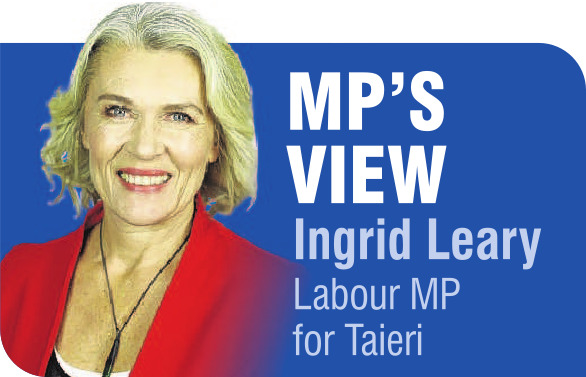
While proponents argue it’s necessary for fiscal sustainability, evidence shows such a move would be deeply unfair and regressive, disproportionately harming vulnerable communities.
This concern has been expressed to me by constituents in South Dunedin, Green Island and in Mosgiel, where a large portion of the population includes retirees and workers from physically demanding industries. Raising the superannuation age would have a particularly harsh impact.
Economist Craig Renney highlights the human cost behind the numbers.
Raising the super age to 67 would mainly benefit wealthier, predominantly Pākehā New Zealanders, who hold the largest KiwiSaver balances and accumulated wealth. In contrast, Māori, Pasifika, and those in physically demanding, lower-paid jobs — with fewer savings— would suffer the most.
The disparity is stark: a Pākehā male might lose about 15% of expected superannuation, but a Māori male, facing shorter life expectancy, could lose 25%.
This is not just a financial issue but one of equity and social justice, as raising the retirement age would worsen inequalities by penalising those who have worked hardest and lived shortest.
Much of the talk about NZ Super’s "unaffordability" is overstated. Treasury data shows we currently spend about 4.4% of GDP on superannuation, much less than countries like Germany (10%), France (13.4%), or the OECD average (7.7%).
Even with an ageing population, projections suggest only a modest increase of about 1% of GDP by 2050.
This indicates no fiscal crisis demanding drastic cuts or raising the super age. Instead, it reflects a manageable cost aligned with the commitment to dignified retirements for all New Zealanders.
NZ Super is more than a payment; it’s a social insurance policy preserving dignity and choice for seniors.
While means-testing might seem appealing, it introduces inefficiencies and administrative burdens, especially as seniors’ needs grow more complex. Universal superannuation effectively addresses rising pensioner poverty, soaring housing costs and the reality that many seniors rent or struggle with energy bills. Targeted support risks missing those in need or arriving too late.
Te Pāti Māori’s call to lower the super age for Māori reflects real disparities in life expectancy and work conditions.
Although Labour opposes different super ages by ethnicity, raising the age would disproportionately harm Māori and Pasifika communities.
Acknowledging these disparities is essential to crafting policies that reduce inequality. Raising NZ Super’s age is a regressive policy that would deepen inequality and hurt the most vulnerable.
As a society, we must decide whether to support seniors who have contributed throughout their lives or penalise them for circumstances beyond their control. This debate must ensure NZ Super remains a cornerstone of social justice.












